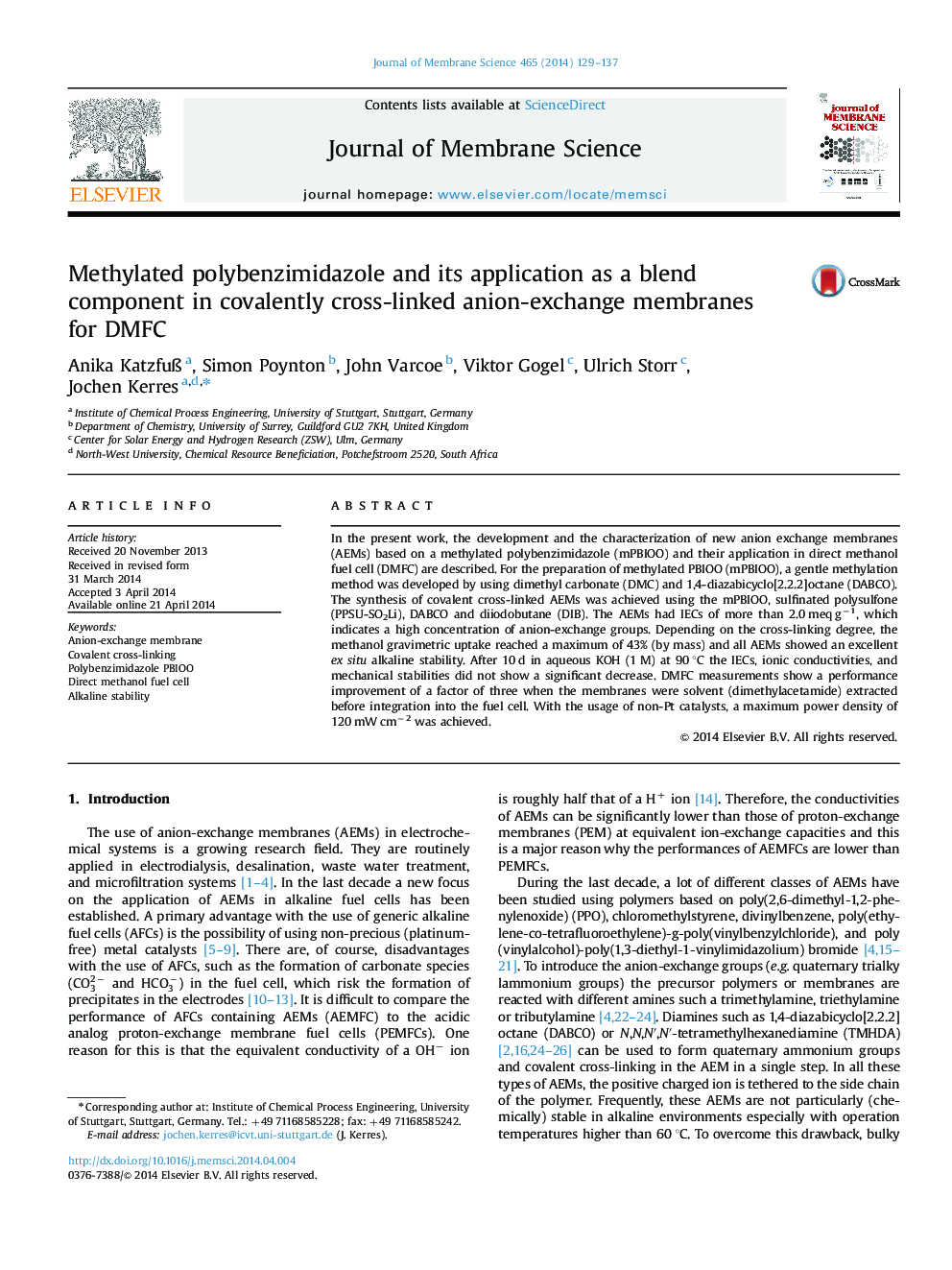| Article ID | Journal | Published Year | Pages | File Type |
|---|---|---|---|---|
| 633581 | Journal of Membrane Science | 2014 | 9 Pages |
Abstract
In the present work, the development and the characterization of new anion exchange membranes (AEMs) based on a methylated polybenzimidazole (mPBIOO) and their application in direct methanol fuel cell (DMFC) are described. For the preparation of methylated PBIOO (mPBIOO), a gentle methylation method was developed by using dimethyl carbonate (DMC) and 1,4-diazabicyclo[2.2.2]octane (DABCO). The synthesis of covalent cross-linked AEMs was achieved using the mPBIOO, sulfinated polysulfone (PPSU-SO2Li), DABCO and diiodobutane (DIB). The AEMs had IECs of more than 2.0 meq gâ1, which indicates a high concentration of anion-exchange groups. Depending on the cross-linking degree, the methanol gravimetric uptake reached a maximum of 43% (by mass) and all AEMs showed an excellent ex situ alkaline stability. After 10 d in aqueous KOH (1 M) at 90 °C the IECs, ionic conductivities, and mechanical stabilities did not show a significant decrease. DMFC measurements show a performance improvement of a factor of three when the membranes were solvent (dimethylacetamide) extracted before integration into the fuel cell. With the usage of non-Pt catalysts, a maximum power density of 120 mW cmâ2 was achieved.
Related Topics
Physical Sciences and Engineering
Chemical Engineering
Filtration and Separation
Authors
Anika KatzfuÃ, Simon Poynton, John Varcoe, Viktor Gogel, Ulrich Storr, Jochen Kerres,
